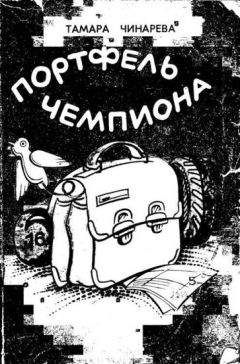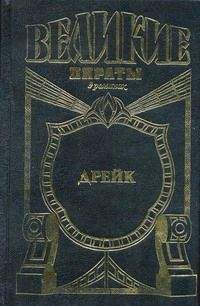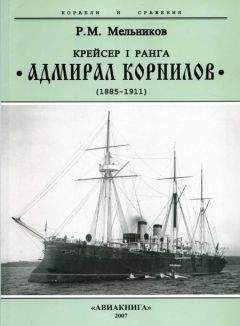Alexander Kent - Midshipman Bolitho and the Avenger
Bolitho said, `No time to change into uniform, Martyn. We'll go as we are.'
Both he and his friend were dressed in mixed clothing which they had borrowed from chests and cupboards throughout the house. In a house which was, and had always been, a home for sea officers, there was naturally a plentiful supply of spare coats and breeches.
They were ready to leave in fifteen minutes. From drowsy relaxation to crisp preparedness. If the Navy had given them nothing else, it had taught them that. The only way to stay alive in a ship-of-war was to stay vigilant.
Horses clattered on the stones outside the doors, and Bolitho asked, Who is the lad who found the body, John?'
Pendrith shrugged. `The smith's son.' He made a motion with his finger to his forehead. `Not all there. Moonstruck.'
Bolitho kissed his mother on the cheek. Her skin was like ice.
`Go to bed. I'll be back soon. Tomorrow we'll send someone to the magistrate in Truro, or to the dragoons.'
They were out and mounted before the swirling snow made their journey more difficult.
There were few lights to be seen in the town, and Bolitho guessed that most sensible folk were in bed.
Dancer called, `I suppose you know most people hereabouts, or they know you? That's the difference 'twixt here and London!'
Bolitho tucked his chin into his collar and urged the horse through the snow. Fancy Pendrith remembering about the dory. He and his brother had been competing with each other. Hugh had been a midshipman then, while he had been waiting the chance to join his first ship. Their father had been beside himself with anger, which was unusual. Not for what they had done, but because of the worry they had given their mother. It was true too that he had beaten them both to make them remember it.
Soon they heard the sea, rumbling and hissing against the headland and the necklace of rocks below. It was eerie under this mantle of snow. Strange shapes loomed through the darkness, while trees shed great pieces of their white burden to make sounds like a footpad running through the night.
It took all of an hour to discover the cove, which was little more than a cleft in the solid rock with a small, sloping beach. The smith's son waited for them with a lantern, humming to himself and stamping his feet on the wet sand for comfort.
Bolitho dismounted and said, `Hold my horse, Martyn.' The animal was nervous and restless, as horses often were in the presence of death.
The corpse lay on its back, arms outflung, mouth open.
Bolitho forced himself to kneel beside the dead revenue man.
`Was he like this, Tim?'
`Aye, zur.' The youth giggled. `I was a-lookin' for…' He shrugged. 'Anythin'.'
Bolitho knew all about the local blacksmith. His wife had left him long ago, and he. sent his weakminded son out of his cottage whenever he was entertaining one of his many female visitors. It was said that he had caused the boy's mind to go by hitting him as a baby in a fit of rage.
The youth said as an afterthought, ''Is pockets is empty, zur. Nary a coin.'
Dancer called, `Is it the man, Dick?'
Bolitho stood up. `Aye. His throat's been cut.'
The Cornish coast was renowned for its smugglers. But the revenue men were seldom injured in their efforts to find and catch them. With the squire away, and without his additional support as local magistrate, it would mean sending for aid from Truro or elsewhere.
He recalled the gamekeeper's words and said to Dancer, `Well, my friend, it seems we are not free of our duty after all.'
Dancer soothed the restless horses. `I thought it too good to last.'
Bolitho said to the youth, `Go to the inn and tell the landlord to rouse some men. We'll need a hand-cart.' He waited for his words to sink in. `Can you manage that?'
He nodded jerkily. 'Oi think so, zur.' He scratched his head. 'Oi bin 'ere a long time.'
Dancer reached down and handed him some money. `That's for all your trouble, er, Tim.'
As the youth stumbled away, chattering to himself, Bolitho shouted after him, `And don't give it to your father!' -
Then he said, `Better tether the horses and give me a hand. The tide's on the make and we'll lose the body in a half-hour otherwise.'
They pulled the sodden corpse up the shelving beach, and Bolitho thought of other men he had seen die, yelling and cursing in the heat and din of battle. That had been terrible. But to die like this man, alone and terrified, and then to be thrown in the sea like some discarded rubbish seemed far worse.
By the time help arrived and the corpse was taken to the church, and then they had all gone to the inn to sustain themselves, it was almost dawn.
The horses made little noise as they returned to the house, but Bolitho knew his mother would hear and be waiting.
As she hurried to greet them he said firmly, `No, Mother. You must go back to bed.'
She looked at him strangely and then smiled. `It is good to have a man in the house once again.'
2. The 'Avenger'
Bolitho and Dancer entered the front door, stamping their boots free of mud and snow, their faces and limbs tingling from a brisk ride across the headland.
It had all but stopped snowing, and here and there gorse or shrub were poking through, like stuffing from a torn mattress.
Bolitho said quietly, `We have company, Martyn.'
He had already seen the coach in the yard where Corker and his assistant were tending to a fine pair of horses. He had recognized the crest on the coach door, that of Sir Henry Vyvyan, whose sprawling estates lay some ten miles to the west of Falmouth. A rich and powerful man, and one of the country's most respected magistrates as well.
He was standing by the crackling fire, watching Mrs Tremayne as she put the finishing touches to a tankard of mulled wine. She had her own receipt for it, with carefully measured ingredients of sugar, spice and beaten egg yolk.
Vyvyan was an impressive figure, and when Bolitho had been much younger he had been more than a little frightened of the man. Tall, broadshouldered, with a large hooked nose, his countenance was dominated by a black patch over his left eye. From above his nose, diagonally across the eye socket and deep into the cheek bone was a terrible scar. Whatever had done it must have clawed out the eye like a hook.
The remaining eye fixed on the two midshipmen, and Vyvyan said loudly, `Glad to see you, young Richard, an' your friend.' He glanced at Bolitho's mother who was sitting by the far window. `You must be right proud, ma'am.'
Bolitho knew that Vyvyan rarely spent his time on useless visits. He was something of a mystery, although his swift justice against footpads and highwaymen on and around his estates was well known and generally respected. He was said to have made his fortune privateering against the French and along the Spanish Main. Others hinted at slavery and the rum trade. They were all probably wrong, Bolitho thought.
It was strange how unreal the revenue man's death had seemed as they had ridden hard along the rutted coast road. It had been two nights since they had stood by the corpse with the smith's moonstruck son, and now with a bright sky to drive the shadows away from the snow and the hillsides, it had all become like part of a bad dream.
Vyvyan was saying in his deep voice, `So I says to meself, ma'am, with Squire Roxby an' his family enjoyin' themselves in Bath, an' the military away disportin' themselves like dandies at our purses' expense, who better than meself to get over to Falmouth an' take the strain? I see it as me duty, especially as poor Tom Morgan was a tenant of mine. He lived just outside Helston, a stout, reliable yeoman. He'll be sorely missed, not least by his family, I'm thinkin'.'
Bolitho watched his mother, seeing her hands gripping the arms of her chair, the relief on her even features. She was glad Sir Henry had come. To restore security and kill the dangers of rumour. Bolitho had heard plenty of that on their two days of leave. Tales of smugglers, and spine-chilling talk of witchcraft near some of the smaller fishing villages. She was also relieved that Vyvyan and not her youngest son was to carry the responsibility.
Vyvyan took the steaming tankard from Mrs Tremayne and said approvingly, `God swamp me, ma'am, if I didn't hold Mrs Bolitho as a dear friend I'd lure you to Vyvyan Manor all for meseif! There's none in the whole county who can mull wine like you.'
Dancer cleared his throat. `What do you intend, sir?'
The solitary eye swivelled towards him and held steady.
`All done, me boy.' He spoke cheerfully and offhandedly, like one who is used to making and following through decisions. `Soon as I heard the news I sent word'to Plymouth. The port admiral is a friend.' The eyelid dropped in a wink. `And I'd heard that your people have been active of late against the smugglin' gentry.'
Bolitho pictured the big two-decker, Gorgon, laid up for repairs, her decks probably covered in snow. It would take longer than anticipated. Captain Conway might well see fit to grant extended leave to his junior officers. After all, when she put to sea again it could be several years before the Gorgon touched England once more.
Vyvyan added, `The admiral will send a ship to deal with this matter. I'll have no murderin' scum working my coast!'
Bolitho remembered that some of Vyvyan's land ran down to the sea itself, from the dreaded Lizard to somewhere near the Manacles. A' dangerous and cruel coastline. It would take a brave smuggler to try and land a catch there and face Vyvyan's rough justice at the end of it.
Bolitho turned as his mother said softly, `I'm grateful for your trouble, Sir Henry.' She looked pale, more so in the reflected glare from the snow outside.
Vyvyan regarded her affectionately. `But for that damned husband of yours, ma'am, I'd have set me cap at you, even if I am a cut-about old villain!'
She laughed. `I'll tell him when he returns. It may make him quit the sea.'
Vyvyan downed the last of the wine and waved another ladle aside. `No, I must be off now. Tell that fool of a coachman to get ready, if you please!' To the room at large he added, `No, don't do that, ma'am. England will need all her sailors again afore long. Neither the Dons nor the French Court will rest until they have bared their metal against us for another attempt.' He laughed loudly. `Well, let 'em!' He faced the two midshipmen. `With lads like these, I think we can rest easy at night!'
With a hug for Mrs Bolitho and heavy slaps on the back for the midshipmen he stamped out into the hall, bellowing for his coachman.
Dancer grinned. `His man must be deaf!'
Bolitho asked, `Is it time to eat, Mother? We're starving!'
She smiled at them warmly. `Soon now. Sir Henry's visit was unexpected.'
Two more days passed, each full of interest, and neither spoiling their escape from discipline and the routine life of shipboard.
Then the postboy, as he called at the house for something hot to drink, confided that a vessel had been sighted standing inshore towards the entrance to Carrick Roads.
The wind had veered considerably, and Bolitho knew it would take all of an hour for the incoming vessel to reach an anchorage.
He asked the postboy what she was, and he replied with a grimace, `King's ship, sir. Cutter by the looks of ' er.'
A cutter. Probably one of those used by the Revenue
Service, or better still, under naval command.
He said quickly, `Shall we go and see her?' Dancer was already looking for his coat. `I'm ready.'
Bolitho's mother threw up her hands. `No sooner back and you want to go looking at ships again! Just like your father!'
The air was keen-edged, like ice, but by the time they had walked through the town to the harbour they were glowing like stoves. Good food, with regular sleep and exercise, had worked wonders for both of them.
Together they stood on the jetty and watched the slow-moving vessel tacking towards her anchorage. She was some seventy feet in length, with a massive beam of over twenty. Single-masted, and with a rounded, blunt bow, she looked cumbersome and heavy, but Bolitho knew from what he had seen elsewhere that properly handled cutters could use their great sail area to tack within five points of the wind and in most weathers. She. carried a vast, loosefooted mainsail, and also a squared topsail. A jib and fore completed her display of canvas, although Bolitho knew she could set more, even studding sails if required.
She was now turning lazily into the wind, her canvas vanishing deftly as her hands prepared to drop anchor. A red ensign and masthead pendant made the only colour against the pewter sky, and Bolitho felt the same old feeling he always did when seeing a part, even a small part, of his own world.
Blunt and clumsy she might appear, lacking the glinting broadsides and proud figureheads of larger men-of-war, she was nevertheless somebody's own command.
He saw the anchor splash down, the usual bustle at the tackles to sway the jolly boat up and over the bulwark.
Across the choppy water they both heard the twitter of calls, and pictured the scene on board. In that seventy feet of hull they carried a company of nearly sixty souls, although how they managed to sleep, eat and wdrk in such cramped space was hard to fathom. They shared the hull with anchor cables, water, provisions, powder and shot. It left few inches for comfort.
The jolly boat was in the water now, and Bolitho saw the gleam of white breeches beneath a blue coat as the vessel's commander climbed down to be pulled ashore.
As the tide and wind swung the cutter to her cable Bolitho saw her name painted across her raked quarter. Avenger. The dead revenue man would have approved, he thought grimly.
A small knot of onlookers had gathered on the wall to watch the newcomer. But not too many. People who lived by and off the sea were always wary of a King's ship, no matter how small.
Bolitho started as the boat hooked on to the jetty stairs and a burly seaman hurried towards him and knuckled his forehead.
`Mr Midshipman Bolitho, sir?'
Dancer chuckled. `Even out of uniform you are recognized, Dick!'
The seaman added, `My cap'n wishes a word, sir.'
Mystified, they walked to the stairs as the cocked hat and shoulders of Avenger's commander appeared above the wet stones.
Bolitho stared with amazement. `Hugh!'
His brother regarded him impassively. `Aye, Richard.' He nodded to Dancer, and then called to
his coxswain, `Return to the ship. My compliments to Mr Gloag, and tell him I will signal when I require the boat.'
Bolitho watched him, his feelings mixed and confused. Hugh was supposed to be in a frigate, or so he thought. He had changed quite a lot since their last meeting. The lines at his mouth and jaw were deeper, and his voice carried the rasp of authority. But the rest was unchanged. The black hair like his own, and like some of the portraits in the house, tied above his collar with a neat bow. Steady eyes, strained after long hours of sea duty, and the same old air of supreme confidence which had brought them to blows in the past.
They fell in step, Hugh thrusting past the onlookers with barely a glance.
As they walked he said,. `Is Mother well?' But he sounded distant, his mind elsewhere.
`She'll be glad to see you, Hugh. It will make it a real Christmas.'
Hugh glanced at Dancer. `You've all been having a time for yourselves in the old Gorgon, I believe?'



